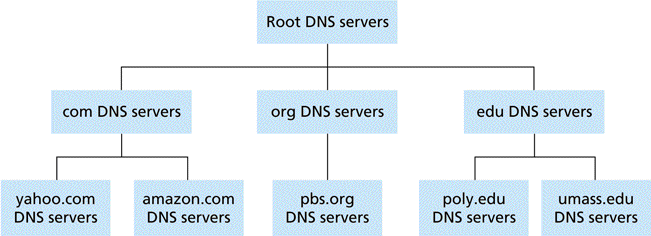You can think of an internet domain as your street address, while the actual website is your office building where customers visit. After buying a domain, you have purchased the name for your site, but you still need to build and host the website separately.
Domain names exist to make a web address easier for humans to access
When choosing a domain name, you want people to be able to find you and remember you so that they can share your site and your brand with others. Shorter names help reduce the chance of errors in typing, remembering or sharing your name.
Domain names are more than just your address on the internet: they support your branding and allow prospects and customers to find you, which gives your business a chance to grow. Once you’ve settled on a domain name, consider starting the trademark process to prevent others from using that name.
DNS works like a phone book
Domains are used to point users to a requested resource and this is accomplished by using the Domain Name System (DNS). Because computers communicate on the internet using an IP address, the DNS works like a phone book, making it easier for humans to remember a website network location.
When you type a website name into your web browser, or click a link from a search engine result, you are first routed to a DNS server that tells your computer which IP address is associated with that domain name. Its similar to a phone operator that would manually connect your call.

DNS records allow website owners to host a variety of different resources across several different servers. When a website changes its IP address, the DNS server automatically redirects a user without them even knowing the IP changed.
Websites are the actual internet resources that a user is trying to access
The most important building block of any website is knowing the intent of the audience you are trying to target.
In a world that contains 1.4 billion websites of every kind, creating a strong unique selling proposition is absolutely imperative. Why is someone going to visit your website over a competitor? What special value do you provide?
If your website is basically just an online brochure, it has very little chance of selling anything in the crowded Internet marketplace. For ideas you can implement to transform your website into a more functional information source, check out our list of 9 informative elements that make a successful online business.
You May Also Like
- How to Install Docker CE on CentOS 7/8 with CWP, cPanel, or Plesk
- How to Install the Latest Version of curl (7.77.0) on Ubuntu 18.04/20.04 with HestiaCP or VestaCP
- Defend Your Website Against Clickjack Attacks – A Comprehensive Guide
- Essential Ingredients: 9 Elements of a Successful Website
- Optimize Your Domain Portfolio with These 6 Free Research Tools
